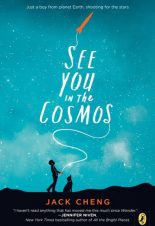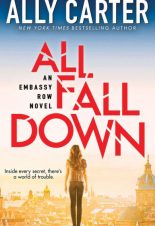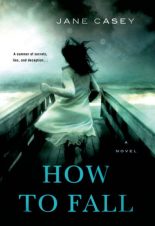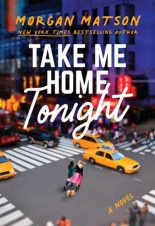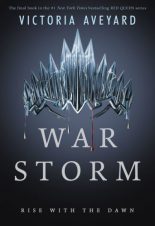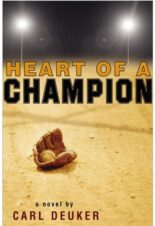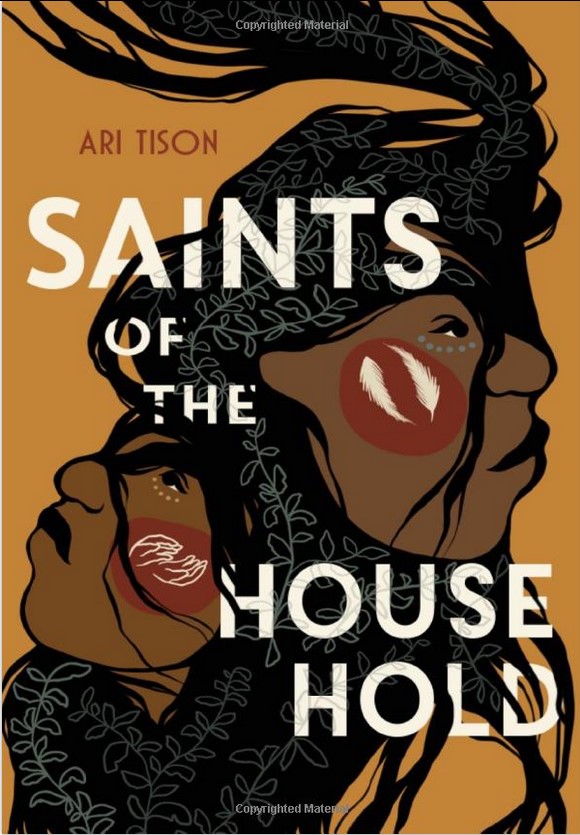
Buy This Book
“We’ve got everything against us, dawö’chke, but we’re still here, aren’t we? Each one of us made it. And we will still make it through all we’re facing,” Grandpa Fernando. –Saints of the Household
Saints of the Household
by Ari Tison
AR Test, Must Read, Teaches About Culture
14+
Score
4.5
320
Max and Jay have always depended on one another for their survival. Growing up with a physically abusive father, the two Bribri (indigenous Puerto Rican) American brothers have learned that the only way to protect themselves and their mother is to stick to a schedule and keep their heads down.
But when they hear a classmate in trouble in the woods, instinct takes over and they intervene, breaking up a fight and beating their high school’s star soccer player to a pulp. This act of violence threatens the brothers’ dreams for the future and their beliefs about who they are. As the true details of that fateful afternoon unfold over the course of the novel, Max and Jay grapple with the weight of their actions, their shifting relationship as brothers, and the realization that they may be more like their father than they thought. They’ll have to reach back to their Bribri roots to find their way forward.
Told in alternating perspectives, Saints of the Household outlines Jay’s and Max’s stress as they enter their final year of high school. Ari Tison is Bribri herself and brings Bribri stories and language into the text. She integrates these elements seamlessly. It gives insight into Bribri culture and provides a contrast to rural Minnesota. The boys’ connections with their home and their mother’s family are deeply important to the story, as it provides a sense of normalcy and peace in an environment that is otherwise uncertain.
Jay and Max’s relationship drives the tone of the story. The brothers have different personalities, which causes conflict. Max wants to escape his home situation and often pulls away from Jay, who is always preoccupied with family and school matters. The brother’s bond fluctuates; the more Jay and Max exist in harmony, the more hopeful the story becomes. Both Jay and Max are sympathetic characters, and readers will find it easy to connect with them.
Since Jay and Max are familiar with domestic violence, Saints of the Household includes violent scenes. In addition, when their classmate Luca physically abuses Nicole – his then-girlfriend – the brothers beat up Luca in order to protect Nicole. Some readers may find the abuse troubling as Tison’s remarkably succinct writing style makes the descriptions of these scenes short, yet powerful. Despite this, in the quiet moments, Jay and Max find solace in each other and in their Bribri traditions even though they live in the tundra of Minnesota. Jay also seeks comfort in his friend Nicole, while Max finds it in his art.
In order to help readers distinguish between the brothers, Max’s chapters are all written in wandering verse, which is in stark contrast to Jay, who writes his thoughts in prose. The changing points of view illustrate the differences between the brothers as well as highlights how differently they understand their current situations. Another factor that affects the story is that religion plays a significant role in the story as the boys’ beliefs balance between Christianity and Bribri traditions. As with other elements of the book, these are integrated seamlessly into the story and there aren’t any strong stances taken on the topic itself. Religion is as much a part of Jay and Max’s life as Bribri culture, or their mom’s hot chocolate: it just is.
Despite the darkness that cloaks the events in Saints of the Household, the ending is uplifting. The brothers have witnessed violence and have even stooped to physically fighting each other. Despite this, the conclusion hints that Max and Jay will make it through these difficult times through their family’s and friends’ love. Saints of the Household will appeal to readers looking for a more literary and thoughtful text rather than an action-packed adventure. The story ends on a hopeful note and shows that the characters will make it through to the next stages of their lives. It also reminds readers that life can get better. For more perspective from indigenous authors, read The Marrow Thieves by Cherie Dimaline and Powwow Summer by Nahanni Shingoose.
Sexual Content
- Jay finds one of his dad’s porn magazines. The magazine has “a woman with a low-cut shirt lean[ing] forward on the cover.”
- Nicole used to date Aaron, but she “think[s] Aaron was hooking up with someone else right after we broke up because of something I saw online. They were flirting in the comments somewhere.”
- Max and his girlfriend, Melody, kiss. Max describes, “She leans over and kisses me./ We kiss hard, and I cry.”
- Max mentions that he says “no to [Melody] when she asks about sex” because he’s worried he’ll hurt her.
- At a school dance, Max and Melody kiss. Max describes, “Before we get to the hall,/ she turns off the lights,/ and then I kiss her, and we kiss, and we kiss,/ by the dark door.”
- Max and Melody “mess around, pulling clothes;/ she’s musk, honey, stomach,/ ochre colors filling my mind/ with every kiss and touch/ we unfurl on the bed,/ until she’s over me.” Max stops before things can go any further.
- After an absence, Nicole sees Aaron again. “Before Aaron can say anything, they hug each other, and hug and hug. She kisses him on the cheek. He kisses her back, and they start really kissing.”
Violence
- The narrator asks God for forgiveness for “kicking the neighbor’s dog, for shouting at the sky, for beating up that boy.” The event where the boy, Luca, is beaten up is explained later in the book as the book’s plot follows the aftermath.
- After they beat up Luca, Jay and Max see a counselor. The counselor asks, “Why didn’t you stop? Why did you kick him in the face? You broke his nose…His face is severely injured.”
- Jay explains what happened the day they beat up Luca. Jay says, “Luca was pulling at [Nicole’s] jacket, and she pushed his hands away. Then Luca’s hands were on her shoulders while she swore at him. . . She pushed him off, then he grabbed her hand and yanked it down and then leaned forward to say something in her ear. And we snapped. We were on him, pulling him away from Nicole, and he swore at us. He shoved Max, and I shoved him back, then he shoved me back, and then we beat the heck out of him.” This description lasts for one page.
- Jay describes the first time his dad hit him. Jay says, “Dad opened the door and caught me listening. I saw his usual hard anger turned hot, but hotter this time. I can still feel it. That first time he swung. My body crumpled onto the wooden floor.” The description ends after a page, but it is established that this happens regularly.
- Jay explains his father’s domestic violence further. Jay says, “After Max’s fourteenth birthday, he took to hitting me whenever I did anything that upset him…Then he started on Max. He made us swear never to tell Mom, because she wouldn’t understand that it was what we deserved for acting like fools, for not doing what he asked, for looking at him the wrong way and how it showed him disrespect. That didn’t last long, because his anger turned to her soon.”
- The brother’s mom tells a story about two young men who have to stop mystical eagles from stealing children from a tribe. They lull the eagles to sleep and, while they slept, the two men “swiftly took a knife to [the eagle’s] throat and cut [them] to pieces.”
- Max and Jay come home and see their mom crying and holding her shoulder. Their dad is yelling. Jay reacts: “With two long strides, I am right up to him, him and his sour breath. I send my fist right to his face.” Their dad ends up leaving the house without taking a swing at Jay.
- Jay’s dad tries to be nice to Jay’s mom, but then Jay says, “I lay him out when he drinks too much and goes after Mom again.” It is insinuated later that his dad hit his mom in the face.
- After an absence, Jay and Max’s dad comes home. Jay details: “Late at night, I hear a loud bang at the back door. Mom opens it, like she does. And I hear it, the lick of fist to skin. I see Dad’s hands go hard to her neck. Max jumps on Dad.” Their dad is arrested.
- Jay has dreams about his dad physically abusing him. He has “dreams where Dad’s hands hit me across the face, harder for calling the authorities on him…I see the time he decked me for taking it out and how he marched me out to the alley and pushed my face into the can so hard the plastic edge cut into my skin.” His descriptions last for a page.
- Jay’s grandpa, Grandpa Fernando, talks to Jay about depression. He says, “I used to get sad, too. You know your great-uncle? It was so much he took his own life. I don’t want that for you.”
- Max and Jay fight. Max says, “I go for you first./ I go for your ankles,/ and your back cracks/ against the wood./ I’m on you,/ swinging and swearing.” The fight ends when Grandpa Fernando hits Max over the head with “a big book in his hands.” The description of the fight lasts for a few pages. Jay sustains bruises on his face, but both brothers are otherwise fine.
Drugs and Alcohol
- The brother’s dad physically abuses his family, “especially when he drinks.” Jay elaborates that his dad “likes rum and Coke.”
- Max paints Melody’s portrait at a park next to a trailer park. Max notes, “there, a smoking empty bean can/ with cigarette butts on the steps.”
Language
- Profanity is used somewhat infrequently. Profanity includes: shitty, asshole, damn, hell, jackass, and fuck.
Supernatural
- None
Spiritual Content
- The book opens with a passage about communion and Christian church service. An unnamed narrator says, “I keep crying at the time of the reflection, asking God for forgiveness. I can’t stop thinking about it — before I am told to eat the cracker and drink the two-inch cup of black-red wine.” The passage lasts for half a page, and God’s name is invoked frequently throughout the book. Jay and Max’s family does attend church.
- Max and Jay are indigenous Costa Rican, and Jay notes that the ocean is traditionally sacred and revered. He says that they’d “have to pray to even get close” to the ocean.
- Grandpa Fernando would tell Max and Jay stories about their ancestors, who were the first indigenous peoples of Costa Rica – the Bribri. He would tell them “of tricksters, the Creator Sibö, and men who were cursed after selfishness.” There are short chapters dedicated to various Bribri stories, and they each last for a couple of pages. One story is about the birth of Creator Sibö.
- Jay references an Old Testament story where “Jonathan risks his life for King David, and a verse says that David loved Jonathan with more love than a man had for a woman — and Max and I are like that. Brothers born eleven months apart.”
- Max and Jay’s mom tells them a story about mystical eagles. She explains that “the mystical eagles were the dragons of Talamanca…They’d come down from the mountains, tearing children from their mothers’ arms, snatching those who went out in the day from the pathways.” The story lasts for a page.
- Max says that he remembers him and Jay “laughing at the sex-garden references in the Bible—Eden, then the gardens in the Song of Solomon.”
“We’ve got everything against us, dawö’chke, but we’re still here, aren’t we? Each one of us made it. And we will still make it through all we’re facing,” Grandpa Fernando. –Saints of the Household
Latest Reviews

Driven

Goodbye Days

Blood of Troy

Will’s Race for Home

Animal Superstars: And More True Stories of Animal Talents

Temple of Secrets

Lifeboat 5

Rock ’n’ Goal

Dogku

